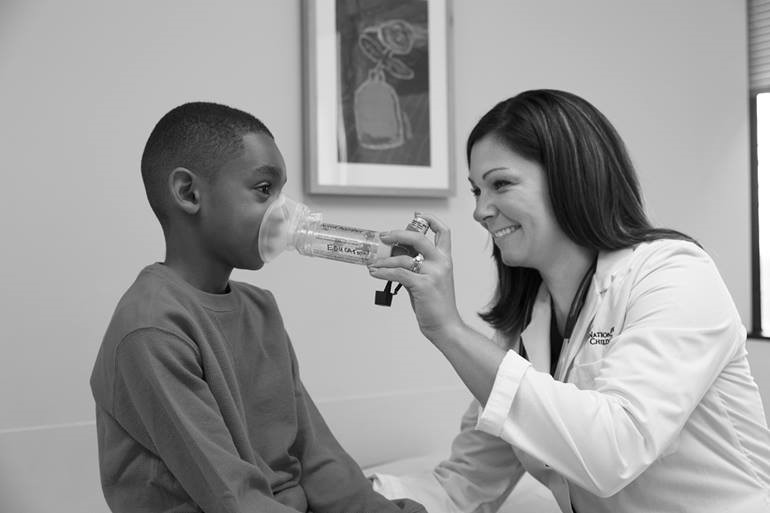New Celiac Care Index Improves Adherence to Care Guidelines
New Celiac Care Index Improves Adherence to Care Guidelines https://pediatricsnationwide.org/wp-content/uploads/2020/03/072709ds337-header-1024x575.gif 1024 575 Lauren Dembeck Lauren Dembeck https://pediatricsnationwide.org/wp-content/uploads/2021/03/Dembeck_headshot.gif- March 09, 2020
- Lauren Dembeck

The recent implementation of a Celiac Care Index (CCI) at Nationwide Children’s Hospital resulted in improved adherence to published care guidelines, reduced variability in baseline evaluations, and indicated potentially unnecessary baseline laboratory tests for further evaluation.
The study, which was published in The Journal of Pediatrics, describes the quality improvement (QI) strategy implemented at the hospital.
“The parameters in our Celiac Care Index were derived from expert-based recommendations published in 2016. We wanted to implement that work because the care of patients with celiac disease is rather individualized, with little standardization across providers, and we know that if you standardize care, then you improve outcomes in many conditions,” says author Ivor Hill, MD, section chief of Gastroenterology at Nationwide Children’s.
Since 2012, the Celiac Disease Center has maintained a patient registry of all patients diagnosed with celiac disease at Nationwide Children’s. New patients are referred to the center’s celiac dietitian through the electronic medical record system. This registry is audited monthly by an administrator to identify visits that were not completed with the dietitian.
The team took advantage of this existing system to implement the CCI. When providers created a new referral to the dietitian for newly diagnosed patients, they were also prompted to order all recommended laboratory tests.
“That was a beneficial part to the way our program was designed. We have one central dietitian, who everyone goes through, so we were able to use that as a monitoring step,” explains author Tracy Ediger, MD, PhD, who is medical director of the Celiac Disease Center at Nationwide Children’s.
The CCI included 14 recommended variables pertaining to anthropometrics, biopsy assessment, dietitian referral and baseline laboratory assessment. Nursing staff communicated with families regarding laboratory test results and follow up testing, and providers were notified via a reminder system when baseline evaluation were not complete.
After implementation in January of 2018, the data derived from the CCI and registry were prospectively collected and tracked weekly to assess adherence. The percentage of patients completing all CCI variables increased from 11% at baseline (late 2017) to 65% by the end of 2018. Similarly, the percentage of total variables completed increased from 74% to 92%.
“The development of an index like this really can improve the consistency and quality of care and can improve the way practitioners work together,” says Dr. Ediger, who is also an assistant professor of Clinical Pediatrics at The Ohio State University College of Medicine.
Among the laboratory test, iron deficiency indicated by low ferritin levels (41%) and nonimmunity to hepatitis B (70%) were common. The authors explained that not all of the baseline laboratory parameters may be necessary. For example, few patients had abnormal levels of thyroid-stimulating hormone and no patients had abnormal levels of free T4.
“As we accumulate more data, I think we’ll be able to rewrite the recommendations for what is necessary at the time of diagnosis,” says Dr. Hill, who is also a professor of Clinical Pediatrics at OSU COM.
“Hopefully, taking out some of the labs that seem redundant or uninformative will also defray some of the costs to the patients and families,” adds Dr. Ediger.
The team acknowledged that the success of the CCI was facilitated by the existing infrastructure, support, and culture of QI at Nationwide Children’s.
Reference:
Sparks B, Salman S, Shull M, Trout A, Kiel A, Hill I, Ediger T, Boyle B. A Celiac Care Index Improves Care of Pediatric Patients Newly Diagnosed with Celiac Disease. Journal of Pediatrics. 2020 Jan;216:32-36.e2. Epub 2019 Nov 6.
Image credit: Nationwide Children’s
About the author
Lauren Dembeck, PhD, is a freelance science and medical writer based in New York City. She completed her BS in biology and BA in foreign languages at West Virginia University. Dr. Dembeck studied the genetic basis of natural variation in complex traits for her doctorate in genetics at North Carolina State University. She then conducted postdoctoral research on the formation and regulation of neuronal circuits at the Okinawa Institute of Science and Technology in Japan.
-
Lauren Dembeckhttps://pediatricsnationwide.org/author/lauren-dembeck/
-
Lauren Dembeckhttps://pediatricsnationwide.org/author/lauren-dembeck/
-
Lauren Dembeckhttps://pediatricsnationwide.org/author/lauren-dembeck/
-
Lauren Dembeckhttps://pediatricsnationwide.org/author/lauren-dembeck/January 29, 2019
- Post Tags:
- Gastroenterology
- Quality Improvement
- Posted In:
- In Brief







